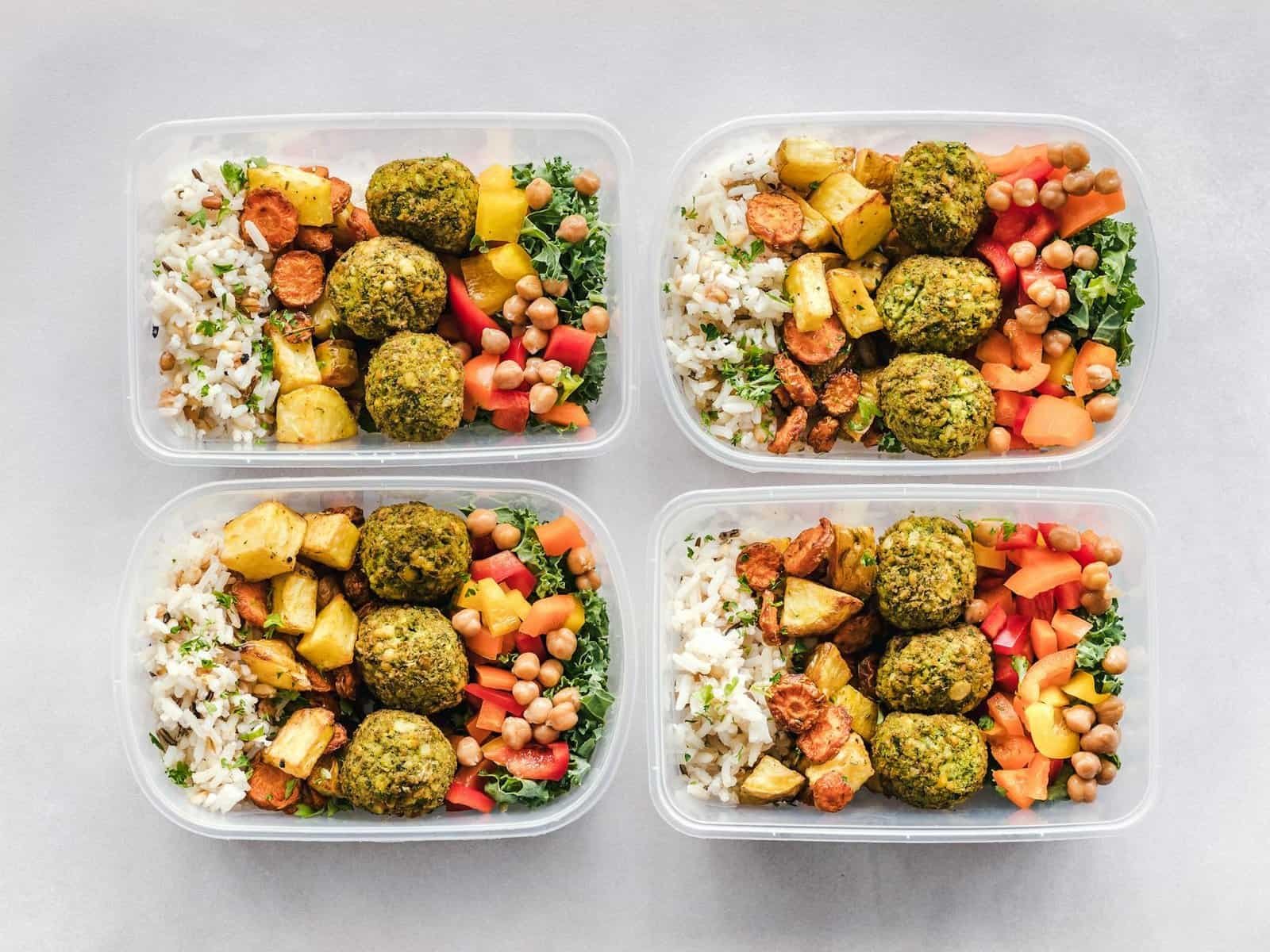Savoring the Mediterranean: Mouthwatering Diet Recipes to Try
Introduction to the Mediterranean Diet
The Mediterranean diet is a highly regarded dietary pattern that is inspired by the traditional eating habits of countries bordering the Mediterranean Sea. Known for its emphasis on fresh, whole foods and a balanced approach to eating, this diet has gained recognition for its numerous health benefits. In this section, we will provide an overview of the Mediterranean diet and explore its many advantages.
Overview of the Mediterranean Diet
The Mediterranean diet is characterized by the consumption of primarily plant-based foods such as fruits, vegetables, whole grains, legumes, and nuts. It also includes moderate amounts of dairy products, seafood, and poultry, while red meat and sweets are limited. Olive oil, a key component of this diet, is used as the primary source of fat.
One of the distinguishing features of the Mediterranean diet is its focus on fresh, minimally processed foods. This eating pattern encourages individuals to choose whole, unrefined ingredients and avoid highly processed and sugary foods. The Mediterranean diet is often praised for its rich flavors, vibrant colors, and diverse culinary traditions.
Health Benefits of the Mediterranean Diet
The Mediterranean diet has been extensively studied and linked to numerous health benefits. Research suggests that adhering to this dietary pattern can contribute to a reduced risk of various chronic diseases, including heart disease, stroke, type 2 diabetes, and certain types of cancer. The following table highlights some of the health benefits associated with the Mediterranean diet:
| Health Benefit | Description |
|---|---|
| Reduced Risk of Heart Disease | The Mediterranean diet is rich in heart-healthy monounsaturated fats, such as those found in olive oil. It also promotes the consumption of fish, which is a good source of omega-3 fatty acids known for their cardiovascular benefits. |
| Improved Weight Management | With its focus on whole, nutrient-dense foods and portion control, the Mediterranean diet can support healthy weight management. The inclusion of fiber-rich foods and healthy fats helps promote satiety and reduce overeating. |
| Enhanced Brain Health | Studies show that the Mediterranean diet may help improve cognitive function and reduce the risk of age-related cognitive decline. The combination of antioxidants, healthy fats, and anti-inflammatory compounds found in this diet may play a role in supporting brain health. |
| Lowered Risk of Type 2 Diabetes | The Mediterranean diet emphasizes whole grains, legumes, and a variety of fruits and vegetables, which are all nutrient-dense foods that can help regulate blood sugar levels. This, in turn, can reduce the risk of developing type 2 diabetes. |
By adopting the Mediterranean diet, individuals can not only enjoy a delicious and diverse range of meals but also reap the many health benefits associated with this eating pattern. In the following sections, we will explore key ingredients in Mediterranean cuisine and provide mouthwatering recipes to inspire you to incorporate this wholesome diet into your lifestyle.
Key Ingredients in Mediterranean Cuisine
The Mediterranean diet is renowned for its emphasis on fresh and wholesome ingredients that contribute to overall health and well-being. Here are the key ingredients commonly found in Mediterranean cuisine:
Olive Oil
The Mediterranean region is known for its abundant production of olive oil, which serves as a staple in the Mediterranean diet. Olive oil is rich in monounsaturated fats, which are considered heart-healthy fats. It has been associated with a reduced risk of heart disease, inflammation, and certain types of cancer.
Olive oil is commonly used as a cooking oil, salad dressing, or a dip for bread. Its distinct flavor adds depth to various Mediterranean dishes, making it a versatile and essential ingredient.
Fresh Vegetables and Fruits
Fresh vegetables and fruits are the cornerstone of the Mediterranean diet. They provide essential vitamins, minerals, and antioxidants that promote good health. The Mediterranean region’s warm climate allows for a wide variety of produce to thrive, resulting in an array of vibrant and flavorful options.
Popular vegetables in Mediterranean cuisine include tomatoes, cucumbers, eggplants, peppers, and zucchini. Fruits such as oranges, lemons, grapes, and figs are also widely enjoyed. These ingredients are often incorporated into salads, stews, roasted dishes, or simply enjoyed fresh.
Whole Grains
Whole grains play a significant role in the Mediterranean diet, providing a good source of dietary fiber, vitamins, and minerals. Unlike refined grains, whole grains retain their bran and germ, which are rich in nutrients.
Common whole grains in Mediterranean cuisine include whole wheat, barley, oats, and brown rice. They are used in a variety of dishes, including bread, pasta, couscous, and pilaf. These grains contribute to the diet’s overall nutritional profile and help promote satiety.
Lean Proteins
The Mediterranean diet emphasizes lean proteins as an essential component of a balanced diet. Lean proteins are sources of high-quality protein while being lower in saturated fats. They are crucial for maintaining muscle mass, supporting growth, and aiding in the body’s repair processes.
Fish and seafood are prominent sources of lean protein in Mediterranean cuisine, particularly fatty fish like salmon, mackerel, and sardines, which are rich in omega-3 fatty acids. Poultry, such as chicken and turkey, and legumes like chickpeas, lentils, and beans, also feature prominently. Eggs and moderate amounts of dairy products, such as yogurt and cheese, are also included in the Mediterranean diet.
By incorporating these key ingredients into your meals, you can enjoy the health benefits associated with the Mediterranean diet. Embrace the flavors of olive oil, fresh vegetables and fruits, whole grains, and lean proteins to create delicious and nutritious dishes that contribute to your overall well-being. For more diet plans and information on healthy eating, explore our collection of articles on diet plans for weight loss and clean eating diet plan.
Mouthwatering Mediterranean Diet Recipes
The Mediterranean diet is known for its delicious and wholesome recipes that incorporate fresh, nutritious ingredients. Here are a few mouthwatering Mediterranean diet recipes to tantalize your taste buds and inspire your culinary adventures:
Greek Salad with Feta and Olives

The Greek salad is a classic Mediterranean dish that showcases the vibrant flavors of the region. It features a combination of crisp vegetables, tangy feta cheese, and briny olives, all dressed with a simple yet flavorful vinaigrette. Here’s a quick look at the ingredients:
| Ingredients | Quantity |
|---|---|
| Ripe tomatoes, cut into wedges | 2 |
| Cucumber, sliced | 1 |
| Red onion, thinly sliced | 1/2 |
| Kalamata olives | 1/2 cup |
| Feta cheese, crumbled | 1/2 cup |
| Extra virgin olive oil | 3 tablespoons |
| Red wine vinegar | 1 tablespoon |
| Dried oregano | 1 teaspoon |
| Salt and pepper | To taste |
To prepare the Greek salad, simply combine the tomatoes, cucumber, red onion, olives, and feta cheese in a large bowl. In a separate small bowl, whisk together the olive oil, red wine vinegar, dried oregano, salt, and pepper to make the vinaigrette. Drizzle the vinaigrette over the salad and toss gently to coat. Serve chilled and enjoy the refreshing flavors of the Mediterranean.
Mediterranean Baked Salmon with Lemon and Herbs

Salmon is a highly nutritious and versatile fish that fits perfectly into the Mediterranean diet. This recipe combines the natural richness of salmon with the bright flavors of lemon and savory herbs. Here’s what you’ll need:
| Ingredients | Quantity |
|---|---|
| Salmon fillets | 4 (6 ounces each) |
| Lemon, sliced | 1 |
| Garlic cloves, minced | 2 |
| Fresh dill, chopped | 2 tablespoons |
| Fresh parsley, chopped | 2 tablespoons |
| Extra virgin olive oil | 2 tablespoons |
| Salt and pepper | To taste |
Begin by preheating your oven to 400°F (200°C). Place the salmon fillets on a baking sheet lined with parchment paper. Season the fillets with salt and pepper. In a small bowl, combine the minced garlic, chopped dill, chopped parsley, and olive oil. Spread the herb mixture evenly over the salmon fillets. Top each fillet with a few slices of lemon.
Bake the salmon in the preheated oven for about 12-15 minutes, or until the fish is cooked through and flakes easily with a fork. Serve the Mediterranean baked salmon with a side of steamed vegetables or a fresh salad for a complete and satisfying meal.
Ratatouille

Ratatouille is a classic French Provençal dish that showcases an array of colorful vegetables. This vegetable medley is not only visually appealing but also packed with flavor. Here’s what you’ll need:
| Ingredients | Quantity |
|---|---|
| Eggplant, diced | 1 |
| Zucchini, diced | 1 |
| Bell peppers, diced | 2 |
| Onion, diced | 1 |
| Garlic cloves, minced | 3 |
| Tomatoes, diced | 4 |
| Fresh basil, chopped | 1/4 cup |
| Fresh thyme leaves | 1 teaspoon |
| Extra virgin olive oil | 3 tablespoons |
| Salt and pepper | To taste |
Start by heating olive oil in a large pan over medium heat. Add the diced eggplant, zucchini, bell peppers, onion, and minced garlic to the pan. Sauté the vegetables until they start to soften, about 10 minutes. Add the diced tomatoes, fresh basil, thyme leaves, salt, and pepper to the pan. Stir well to combine.
Reduce the heat to low and let the ratatouille simmer for about 30-40 minutes, allowing the flavors to meld together. Stir occasionally to prevent sticking. Once the vegetables are tender, remove the pan from heat. Serve the ratatouille as a side dish or enjoy it as a main course with some crusty bread.
Chickpea and Spinach Stuffed Bell Peppers

Stuffed bell peppers are a satisfying and nutritious option for a Mediterranean-inspired meal. This recipe combines protein-rich chickpeas, leafy spinach, and aromatic spices to create a flavorful filling for the bell peppers. Here’s what you’ll need:
| Ingredients | Quantity |
|---|---|
| Bell peppers, halved and seeds removed | 4 |
| Chickpeas, cooked | 1 can (15 ounces) |
| Spinach, chopped | 2 cups |
| Onion, diced | 1/2 |
| Garlic cloves, minced | 2 |
| Ground cumin | 1 teaspoon |
| Ground coriander | 1 teaspoon |
| Paprika | 1/2 teaspoon |
| Salt and pepper | To taste |
| Feta cheese, crumbled (optional) | For topping |
Preheat your oven to 375°F (190°C). Place the bell pepper halves in a baking dish, cut side up. In a large pan, sauté the diced onion and minced garlic until they become translucent. Add the chopped spinach and cook until wilted. Drain and rinse the chickpeas, then add them to the pan along with the ground cumin, ground coriander, paprika, salt, and pepper. Stir well to combine.
Spoon the chickpea and spinach mixture into the bell pepper halves, filling them generously. Top each stuffed bell pepper with crumbled feta cheese, if desired. Bake in the preheated oven for about 25-30 minutes, or until the peppers are tender and the filling is heated through.
These mouthwatering Mediterranean diet recipes are just a taste of the culinary delights that await you. Explore the world of Mediterranean cuisine, and embrace the health benefits and flavors that come with it. For more inspiration on diet plans and recipes, check out our articles on diet plans for weight loss, keto diet for beginners, clean eating diet plan, and intermittent fasting diet.
Tips for Incorporating the Mediterranean Diet into Your Lifestyle
To fully embrace the Mediterranean diet and reap its numerous health benefits, it’s important to incorporate it into your daily lifestyle. Here are some tips to help you seamlessly adopt this nutritious and delicious way of eating.
Meal Planning and Preparation
One of the keys to success with the Mediterranean diet is meal planning and preparation. By dedicating a little time each week to plan your meals, you can ensure that you have all the necessary ingredients on hand and avoid resorting to unhealthy food choices.
Consider creating a weekly meal plan that includes a variety of Mediterranean-inspired dishes. Plan your meals around fresh vegetables, whole grains, lean proteins, and healthy fats like olive oil. To simplify your meal preparation, you can batch cook certain components, such as whole grains or roasted vegetables, to use in multiple meals throughout the week.
Smart Snacking Options
Snacking is a part of many people’s daily routines, and the Mediterranean diet offers a wide array of nutritious snack options. Opt for fresh fruits and vegetables, such as cherry tomatoes, cucumber slices, or grapes, which provide vitamins, minerals, and fiber. Pair them with a handful of nuts or seeds for a satisfying and filling snack.
Greek yogurt topped with berries or a small portion of hummus with whole grain crackers are also excellent choices. These snacks not only provide a burst of flavor but also contribute to your daily intake of essential nutrients.
Dining Out on the Mediterranean Diet
Eating out at restaurants or social gatherings doesn’t mean you have to abandon your commitment to the Mediterranean diet. With a few smart choices, you can still enjoy a Mediterranean-inspired meal outside of your own kitchen.
When dining out, look for menu items that feature fresh vegetables, whole grains, and lean proteins such as fish or poultry. Choose dishes that are grilled, baked, or sautéed rather than fried. Opt for olive oil-based dressings or vinaigrettes instead of creamy dressings. You can also request sauces or dressings on the side to have control over the amount you consume.
If the menu options are limited, consider customizing your order by substituting certain ingredients. For example, ask for a side of vegetables instead of fries or opt for a whole grain option instead of refined grains. Remember, making mindful choices while dining out can still align with the principles of the Mediterranean diet.
By following these tips, you can seamlessly incorporate the Mediterranean diet into your lifestyle. Remember to plan and prepare your meals, choose smart and nutritious snacks, and make mindful choices when dining out. Embracing the Mediterranean way of eating offers a delicious and sustainable approach to nourishing your body. For more information on other popular diets, check out our articles on diet plans for weight loss, keto diet for beginners, clean eating diet plan, and intermittent fasting diet.







